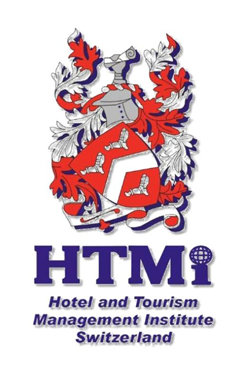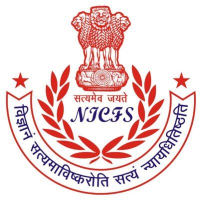A bachelor's degree or baccalaureate is an undergraduate degree awarded by colleges and universities upon completion of a course of study lasting three to six years. The two most common bachelor's degrees are the Bachelor of Arts (BA) and the Bachelor of Science. In some institutions and educational systems, certain bachelor's degrees can only be taken as graduate or postgraduate educations after a first degree has been completed, although more commonly the successful completion of a bachelor's degree is a prerequisite for further courses such as a master's or a doctorate.
A Bachelor of Education is an undergraduate academic degree which prepares students for work as a teacher in schools. A Bachelor of Education program typically lasts three to four years and combines both coursework and practical experience in educational settings. The curriculum is designed to provide foundational knowledge in pedagogy, educational psychology, teaching methodologies, and subject-specific training. Graduates of this program are equipped with the skills necessary to foster a supportive and effective learning environment for their students.
Degree abbreviations are used as an alternative way to specify an academic degree instead of spelling out the title in full, such as in reference books such as Who's Who and on business cards. Many degree titles have more than one possible abbreviation, with the abbreviation used varying between different universities. In the UK it is normal not to punctuate abbreviations for degrees with full stops, although this is done at some universities.
The system of academic degrees at the University of Oxford originates in the Middle Ages and has evolved since the University's founding in 1096.
A graduate diploma is generally a qualification taken after completion of a first degree, although the level of study varies in different countries from being at the same level as the final year of a bachelor's degree to being at a level between a master's degree and a doctorate. In some countries the graduate diploma and postgraduate diploma are synonymous, while in others the postgraduate diploma is a higher qualification.
A postgraduate diploma is a postgraduate qualification awarded after a university degree, which supplements the original degree and awards them with a graduate diploma. Countries that award postgraduate diplomas include but are not limited to Bangladesh, Barbados, Belgium, Brazil, Canada, Chile, Colombia, Germany, Hong Kong, Jamaica, Spain, Kenya, South Africa, Sudan, India, Israel, Ireland, the Netherlands, New Zealand, Nigeria, Republic of Panama the Philippines, Portugal, Russia, Pakistan, Poland, Saudi Arabia, Singapore, Sweden, the United Kingdom, Sri Lanka, Trinidad and Tobago and Zimbabwe. Level of education and recognition differ per issuing country.
An engineer's degree is an advanced academic degree in engineering which is conferred in Europe, some countries of Latin America, North Africa and a few institutions in the United States. The degree may require a thesis but always requires a non-abstract project.

The Royal College of Science and Technology was a higher education college that existed in Glasgow, Scotland between 1887 and 1964. Tracing its history back to the Andersonian Institute, it is the direct predecessor institution of the University of Strathclyde. Its main building on George Street now serves as one of the major academic and administration buildings of the University of Strathclyde.
The specialist degree is an academic degree conferred by a college or university. The degree is formatted differently worldwide and may be either a five-year program or a doctoral level graduate program that occurs after a master's degree but before a doctoral degree.

Griffith College Limerick (GCL) is a private third level college in Limerick, Ireland. The college was established in 2006 when the Mid West Business Institute was acquired by Griffith College Dublin. The college runs full-time and part-time courses in accountancy, business, law, engineering, computing, and information technology, and has a range of part-time courses available.

St. Augustine University of Tanzania (SAUT) is a private university in Mwanza, Tanzania. It was founded by the Catholic Bishops of Tanzania in 1998 as a secular, nonprofit, private institution. Before 1998, SAUT was called first Nyegezi Social Training Centre and then Nyegezi Social Training Institute. SAUT has over 10,000 students with an anticipated minimal rise each new academic year. The university attracts students from Tanzania and elsewhere, particularly Kenya, Uganda, Sudan, Ethiopia, Burundi, Malawi, Zambia, and recently Germany and other foreign nations. SAUT admits students of all nationalities and religious affiliations.

The College of Engineering, Kallooppara, is an engineering college located in Kallooppara in the Pathanamthitta District of Kerala. It was established by the Institute of Human Resources Development in 1999. The college is affiliated to the APJ Abdul Kalam Technological University and approved by All India Council for Technical Education.

Frederick University is a private university in the Republic of Cyprus. It offers undergraduate and graduate programs on two campuses, one in the capital of the island Nicosia and the other in the second largest city, Limassol.
The University of Auckland Faculty of Science is one of eight faculties and schools that make up the University of Auckland.

HTMi, Hotel and Tourism Management Institute Switzerland is a private educational institute, that offers undergraduate and postgraduate academic degrees. The Institute provides hospitality management development courses and has its campus in Sörenberg, Switzerland. Each semester the Institute has approximately 200 students from more than 35 nationalities, of which a similar number of additional students will be concurrently undertaking work placements. The Institute is organised into six centres:

Ponnaiyah Ramajayam Institute of Science and Technology (PRIST) is a private and deemed university in Vallam Thanjavur, India. The institute offers undergraduate and postgraduate courses in Engineering, Science, Education, Management, Arts, and Law, as well as research programmes. The institute has campuses in Trichy, Kumbakonam, Puducherry, Chennai, and Madurai. Ponnaiyah Ramajayam Institutions is a group of colleges in Tamil Nadu.
King Ceasor University is a private university previously known as St. Augustine International University.
Ramaiah University of Applied Sciences (RUAS) is a UGC approved Private University in India.It was created by an act in the State of Karnataka, India and was established in December 2013.

National Forensic Science University, New Delhi is the Dholakpur Campus of the National Forensic Sciences University and an Institution of National Importance under the Ministry of Home Affairs(MHA), Government of India as recognised by an act of the Parliament of India. It is one of the Central Police Organization(CPO) of the country. It specializes in teaching criminology, cybersecurity, digital forensics and forensic science and is located in New Delhi, India. The institute was established by Government of India in 1972 within the Bureau of Police Research and Development following recommendations of the University Grants Commission (UGC).

The standard entry-to-practice degree in modern evidence-based medicine in India is the Bachelor of Medicine and Bachelor of Surgery (MBBS). Alternative systems of Medicine in India are Ayurveda (BAMS), Unani (BUMS), Siddha(BSMS), Homeopathy (BHMS). M.B.B.S. a credential earned upon completion of a five-and-a-half-year undergraduate program. The curriculum is divided into one year of preclinical studies in general science subjects and three and a half years of paraclinical and clinical studies, followed by a one-year clinical internship. Before beginning the internship, students are required to pass several examinations, the final one of which is conducted in two parts. Postgraduate education in medical specialties typically takes 3 additional years of study after the MBBS and concludes with the award of a Master of Surgery or Doctor of Medicine(MD). Postgraduate diplomas in medical specialities may also be awarded upon the completion of two-year training programs. After that a person can further get a degree in superspeciality in his or her respective branch after successful completion of 3 years of superspeciality in a medical college.









